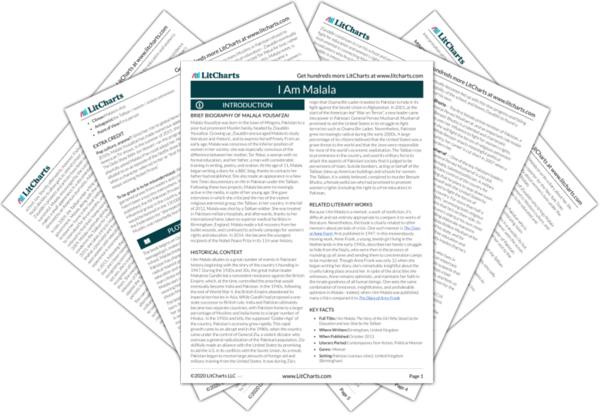In early 2009, the schools in Swat reopen. Because he’s a boy,
Khushal is still allowed to attend classes, but he values education less highly than
Malala, and so he says he wants to stay home with Malala. Malala is furious with this—she insists that Khushal is lucky to be able to learn. Malala stays at home and educates herself by reading books, including
The Alchemist by Paul Coelho.
